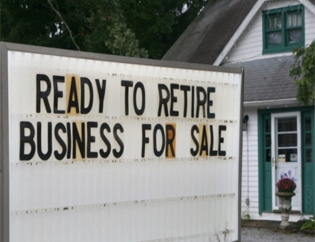Flipping Houses for Maximum Profit – The Seven Tips from Experts
Published 6:39 am 20 Jan 2020

DG Institute founder Dominique Grubisa tells you what to look out for if you want to learn how to flip houses for profit. Flipping houses is not as easy as those TV shows make it seem.
There’s a simple idea behind property flipping.
It’s all about buying and selling homes for a profit. Typically, flipping houses involves buying a property for less than its market value and engaging in some home renovating. You invest time and money into the property so you can sell the house for more money later.
That’s exactly what Ben Trotter achieved with DG Institute:
After attending our Real Estate Rescue seminar, Ben linked up with another member of our community. They entered a joint venture deal with the goal of buying and flipping a property.
They purchased a property in Marsden from a vendor who was in the process of moving into a nursing home. This allowed them to achieve a good purchase price of $239,000.
The duo got to work on renovating the property and building a granny flat. All told, the work cost them $145,016, creating a total cost of $384,016.
They later achieved a sale price of $500,000, generating a $115,984 profit in the process.
→ Register Now For Our Exclusive Webinar Briefing On Fixing and Flipping Undervalued Property.
The appeal behind buying and flipping houses is that it offers one of the fastest routes to profit in real estate investing. However, it’s crucial that you understand how to execute this strategy properly before you start flipping houses.
Here are seven tips for new house flippers.

Tip #1 – Know What You’re Getting Into
The idea behind buying a house to flip may trick you into thinking that it’s easy. Worse yet, you’ve probably seen TV shows that make it look really simple, which adds to the skewed perception.
However, the fact is that every flip project presents a range of unique challenges that you have to look out for.
For every project, you need to conduct extensive due diligence. That means understanding what the location has to offer and the demand in that particular property market. You also need to make sure that you’re financially capable before moving ahead. Many attempts at flipping fall down because investors don’t consider all of the things that could go wrong. Delays and errors in the project eat away at their profit margin until there’s nothing left.
This isn’t to say that flipping isn’t a viable strategy. Just don’t fool yourself into thinking that it’s an easy way to make money through property investment.
Tip #2 – Know That it Takes Time
While flipping properties is a quick way to make a profit, you can’t do it overnight.
This is another false perception that TV programmes create among investors. The reality is that it takes several months of planning, with several more weeks of work, to bring a property up to scratch.
Then, you have to consider the selling process, which can take several more months. All of this time adds holding costs, particularly in regard to paying interest on your mortgage.
The key is to understand that this isn’t an overnight thing. As such, you have to account for the costs of holding a property for several months, in addition to the cost of the work.
Tip #3 – Calculate Costs Carefully
Every cent that you spend on the property is a cent that you’re going to need to make back when you sell.
That’s a key rule of thumb for all property flipping projects. And it emphasises the importance of calculating all of your costs carefully before you move ahead.
Those costs include:
- Buying the property
- The mortgage
- Related lender’s fees
- Stamp duty
- Costs related to planning and design
- Material costs
- Fees charged by construction crews
- Holding costs
And beyond this, you need to build an emergency fund into your budget. This will protect you if something goes wrong during the project.
Tip #4 – Remember That There is a Ceiling
Every property has a ceiling in terms of the maximum profit you can generate from it.
The state of the market and the demand for the property play roles in determining that ceiling. Your job is to figure out what that ceiling is and renovate according to it.
There’s no use in spending thousands of dollars on a new bathroom if you can’t profit from it. Find the ceiling and then figure out which renovations help you to reach it without incurring too much cost.
Tip #5 – Be Wary of Booming Markets
When you buy in a booming market, you may struggle to add value to the property. In fact, you’ll often find that unrenovated properties sell for just as much as renovated ones in those market conditions.
That’s because sellers can price in the dream in these markets. They’re often offering a blank canvas in a desirable area, which is almost as valuable as an actual renovation.
Simply put, be very wary of booming markets when you’re renovating. If you want to flip the property, it’s often best to buy in a market that’s set for growth but hasn’t yet entered a boom period.
Tip #6 – Be Wary of Recently Sold Properties
Technology provides us with a lot of useful things as investors. However, it can also prove to be a hindrance to those who engage in property flipping.
For example, let’s say that you buy a property that only sold a couple of years ago. That usually means that buyers can research the previous sale prices via property websites. If the property has historically low sale prices, that will affect how much you can ask for when you try to flip it.
You may find that buyers simply won’t offer above a certain amount because of the property’s history.
Tip #7 – Create a Scalable System
At DG Institute, we believe that the most successful house flippers create efficient systems. They get the process of flipping down to a fine art, which means they can repeat their process to make a profit. Of course, they still have to confront individual challenges. But they know what they’re looking for and which market conditions will prove most beneficial.
That’s exactly what you need to do.
Of course, that’s difficult to do on your own, especially when you’re new to flipping houses. That’s why it pays to build a network of professionals around you who can provide advice. Operating within a community of experienced people allows you to see what works and what doesn’t. You can then build your own scalable system based on this information.
The Key to Successful House Flipping is…
…You can’t be afraid of a little hard work and a lot of research. Flipping properties successfully is a lot more challenging than the TV shows make it appear.
You need to understand the market and how to find properties that are prime candidates for flipping. Furthermore, you need to develop a scalable system that you can repeat for further flipping success.
The good news is that you’re not alone.
At DG Institute, we teach property investors the ins and outs of flipping. We can help you to avoid the pitfalls while maximising the profit whenever you flip homes.
To find out more, register for the Real Estate Rescue webinar today. You’ll learn about the techniques that other investors use to flip properties profitably and consistently.
You May Also like to Read
A Crash Course in Pre-foreclosure Sale and Short Sales
Foreclosures Introduction to foreclosure What are Mortgagee repossessions Foreclosure...
What is Stamp Duty? Everything You Need to Know
If you are looking to get into the Australian housing market, whether for a residential home or an investment property, it...
10 Key Steps to Buying and Flipping Distressed Properties Without Taking Advantage of Owners in Hardship
There’s plenty of interest in buying and selling distressed property. But what are the mechanics of the process? DG...
Four Tips for Choosing a Builder for House Renovation
A bad builder will cost you money when you’re renovating a property. DG Institute founder Dominique Grubisa checks in with...
Creating the Right Renovation Plan – Five Tips to Help You Avoid Catastrophe
DG Institute founder Dominique Grubisa shows you how planning your perfect home renovation can help maximise your ROI. You...
How to Add Value to Your Home – Six Renovation Tips That Will Help
Are you wondering how to add value to your home? In this article, DG Institute founder Dominique Grubisa outlines some...













